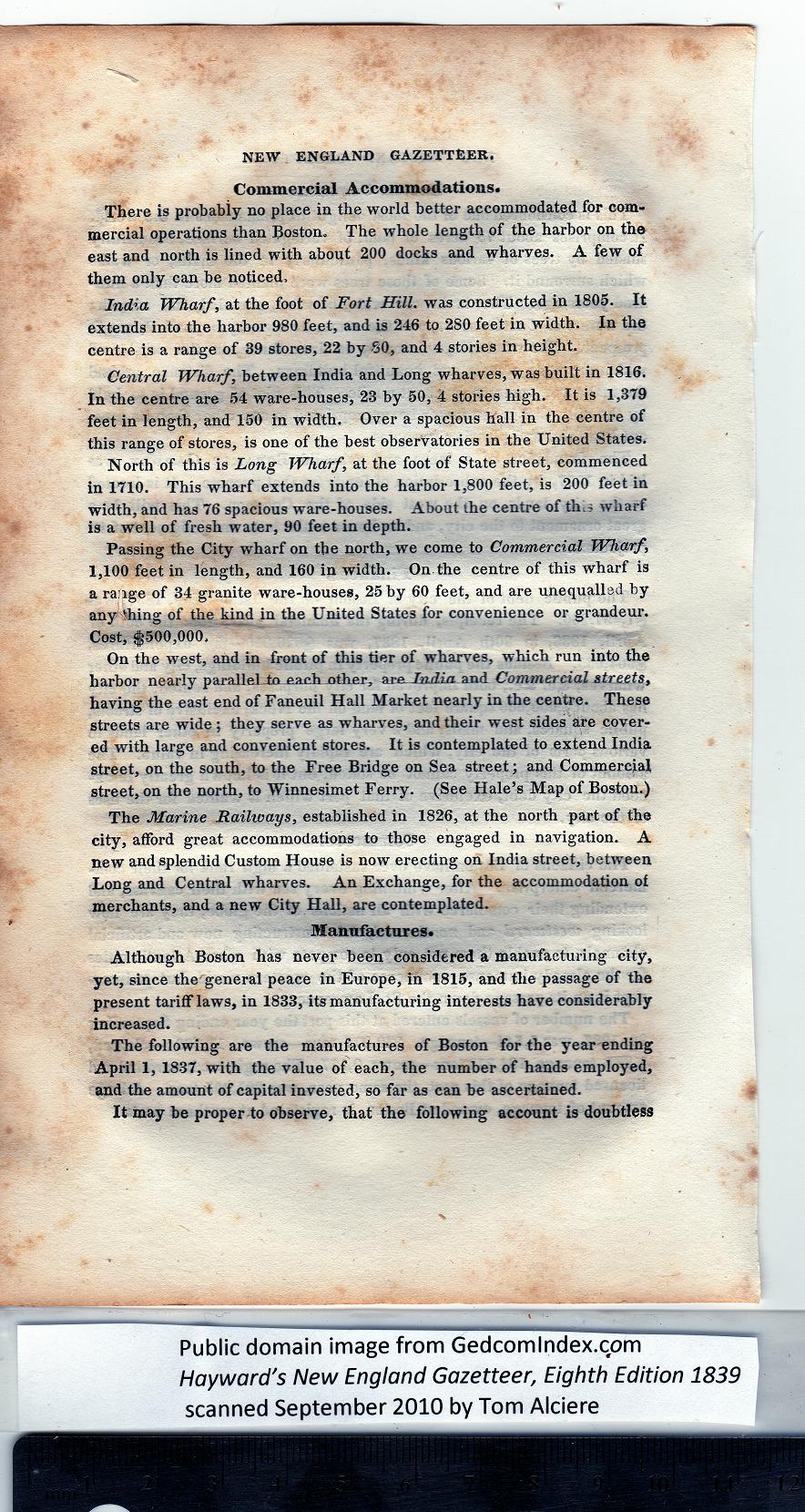|
NEW ENGLAND GAZETTEER.
Commercial Accommodations.
There is probabiy no place in the world better accommodated for com-
mercial operations than Boston. The whole length of the harbor on the
east and north is lined with about 200 docks and wharves. A few of
them only can be noticed,
India Wharf, at the foot of Fort Hill, was constructed in 1805. It
extends into the harbor 980 feet, and is 246 to 280 feet in width. In the
centre is a range of 39 stores, 22 by 80, and 4 stories in height.
Central Wharf, between India and Long wharves, was built in 1816.
In the centre are 54 ware-houses, 23 by 50, 4 stories high. It is 1,379
feet in length, and 150 in width. Over a spacious hall in the centre of
this range of stores, is one of the best observatories in the United States.
North of this is Long IVharf at the foot of State street, commenced
in 1710. This wharf extends into the harbor 1,800 feet, is 200 feet in
width, and has 76 spacious ware-houses. About the centre of thwharf
is a well of fresh water, 90 feet in depth.
Passing the City wharf on the north, we come to Commercial Wharf,
1,100 feet in length, and 160 in width. On the centre of this wharf is
a range of 34 granite ware-houses, 25 by 60 feet, and are unequalled by
any tiling of the kind in the United States for convenience or grandeur.
Cost, $500,000. ~
On the west, and in front of this tier of wharves, which run into the
harbor nearly paralleLtn each other, are India and Commercial streets,
having the east end of Faneuil Hall Market nearly in the centre. These
streets are wide; they serve as wharves, and their west sides are cover-
ed with large and convenient stores. It is contemplated to extend India
street, on the south, to the Free Bridge on Sea street; and Commercial
street, on the north, to Winnesimet Ferry. (See Hale’s Map of Boston.)
The Marine Railways, established in 1826, at the north part of the
city, afford great accommodations to those engaged in navigation. A
new and splendid Custom House is now erecting on India street, between
Long and Central wharves. An Exchange, for the accommodation of
merchants, and a new City Hall, are contemplated.
Manufactures.
Although Boston has never been considered a manufacturing city,
yet, since the general peace in Europe, in 1815, and the passage of the
present tariff laws, in 1833, its manufacturing interests have considerably
increased.
The following are the manufactures of Boston for the year ending
April 1, 1837, with the value of each, the number of hands employed,
and the amount of capital invested, so far as can be ascertained.
It may be proper to observe, that the following account is doubtless
PREVIOUS PAGE ... NEXT PAGE
This page was written in HTML using a program written in Python 3.2 and image-to-HTML text generated by ABBYY FineReader 11, Professional Edition.
|
